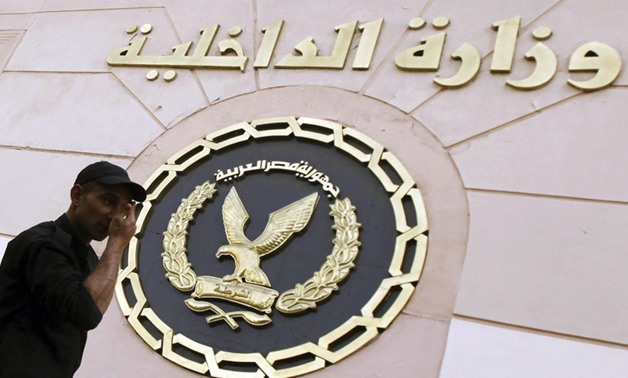
FILE: The Interior Ministry
CAIRO - 4 December 2020: The Ministry of Interior on Saturday ordered four-day detention to seven people involved in a mob sexual assault of two girls in Mansoura governorate, which was captured in a video that went viral and triggered a hot debate on social media.
The detained men will be in custody pending investigations into the incident took place on New Year’s eve.
The video showed a group of men surrounding a woman after she exited a shop, assaulted her and ripped her clothes off, while others appeared trying to rescue her by pushing her into a car away from the crowd.
Investigations revealed that the victim was accompanied by another woman who appeared in the video, but she escaped and entered into a nearby building.
Both aged 20 years old, one of the two women was a student of a private engineering school, while the other one is enrolled in the Faculty of Physical Education and Language in Mansoura.
On Thursday, police arrested 17 young men who were suspected of taking part in the assault.
In February 2018, Qena Criminal Court sentenced a harasser to three years in prison for sexually assaulting 23-year-old Rania Fahmy. Although this is the first harassment case brought to court in Upper Egypt, it is not the first in Egypt. The first harassment case in Egypt was in 2008 when Noha Ostadh filed a case against Sharif Gomaa who harassed her from his car as he drove slowly alongside her.
The first harassment law in Egypt was issued in June 2014 during the rule of the temporary president Adly Mansour, it states that the minimum term of imprisonment for the criminal is six months and/or a minimum fine of LE 3,000 and no more than LE 5,000.
In 2018, the Islamic Research Center held 51,000 awareness sessions across Egypt on the dangers of harassment and violence against women, according to a statement issued by the center.
Secretary-General of the Islamic Research Center Mohieddin Afifi said that these sessions, organized by Al-Azhar sheikhs, spread widely in a short period, the statement reported.
Afifi added that the sessions aim to raise the awareness of Egyptians and urge them to shoulder the responsibility of building a better country for future generations, warning them against the dangers of indulging in rumors and misconceptions.
Some 60 percent of women in Egypt said they had been victims of some form of sexual harassment during their lifetime, according to a 2017 report from UN Women and Promundo.
Two main legislative documents protect, support and empower women in Egypt: The Egyptian constitution of 2014 and the Criminal Code of 1937 and its amendments.
These legislative pieces divide crimes against women in Egypt to two separate groups: Misdemeanors and felonies. Misdemeanors, such as catcalling or sexual harassment, are seen as less significant crimes than felonies, and are usually punished by fines and short-term jail time; the trails are also shortened. Felonies, like FGM, rape, kidnapping a female, or sexual assault, are punished by longer jail time, and a permanent record is placed for those convicted.
According to the Criminal Chamber of the Court of Cassation in Ruling No. 289 of April 24, 1950, there is no need to prove that the offender had complete sexual intercourse with the victim against the victim’s will. It is sufficient for the offender to touch the victim with their hands, reproductive organs, or device against the victim’s will. To ensure justice, Ruling No. 4794 of February 14, 1985, was amended to add that the assailant must have had mental intent, meaning that it was not accidental. Law No. 11 of 2011 was later added to increase the penalty against attackers of children under the age of 18, under article 269 of the Criminal Code, to three to fifteen years in prison.

Comments
Leave a Comment